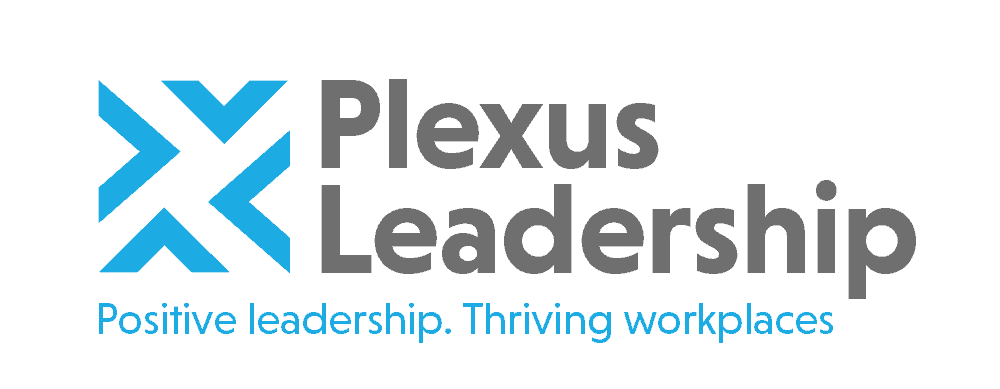The majority of medium and large organizations use psychological assessment tests (including ability, personality and psychometric testing), principally for hiring. This figure is expected to climb to 88% over the next few years (Chamorro-Premuzic, 2015). Using assessment techniques to support talent development and organizational change applications (e.g., to support re-organization and reskilling in response to digitization of work), is also increasingly common. Assessments are being deployed by organizations seeking to improve the diversity of their recruitment and talent pipelines too. They use these tests as additional data sources rather than relying purely on traditional selection techniques like CV screens and behavioural interviews that are prone to subjectivity, rater error and unconscious bias.
It is not just the popularity of assessments and a range of applications that are changing. Rapid technological advances, changing client requirements and a more digitally-curious HR profession mean that the types of assessments are changing fast. Many assessments are decades old and have changed very little since the early part of the last century. Using them is equivalent to using a legacy mainframe to calculate your household budget, rather than using the latest app on your smartphone or tablet.
So, what does the future of psychological assessment hold in this digital age we are entering?
Psychological assessment will become more accessible, thanks to the rapid adoption of new technologies …
New technologies offer innovative breakthroughs in the way we assess people. Mobile technologies, including smart devices and tablets, are likely to replace PCs and laptops as the most common way of undertaking assessments. This presents some formidable challenges in terms of ensuring standardised test conditions Especially with regard to ability tests for selection purposes. However, companies are moving ahead regardless to incorporate these cost-effective and candidate-friendly technologies into their testing processes.
Virtual reality hiring and high-tech simulations will extend the psychological assessment toolkit …
Traditional surveys are giving way to new, more engaging ways of collecting and analysing data. Many of these shifts the focus from proxies of behaviour (e.g., completing a survey) to measuring actual behaviour. A growing number of companies are introducing virtual reality hiring and high-tech simulations. This enables them to see how candidates respond under pressure to challenging situations in the same way pilots are screened and trained using tough simulation exercises. This approach is, in many respects, a far more objective and robust way of measuring performance and potential. Particularly in high pressure, changeable or unpredictable situations.
AI will minimize subjectivity in assessing psychological assessment tests …
Computer-based artificial intelligence (AI) is also being introduced by some companies like HireVue to help minimize subjectivity in decision making, especially when collecting and analysing interview data. With a growing number of tech companies offering smart interview recording and analysis technologies, including video screening via laptops and smart devices, this is a trend we predict will grow significantly.
Gamification will disrupt psychological assessment tests used in selection …
A company at the cutting edge of using new technologies to disrupt selection testing is Arctic Shores. They use online gaming apps to test a range of abilities, including thinking styles, verbal and numerical reasoning and interpersonal styles. This approach has the advantage of improving the candidate experience and minimizing bias in measurement caused by factors such as test anxiety, which can occur when using more traditional tests.
However, games-based assessment is not without critics who argue that psychometric rigour is sometimes compromised in order to engage candidates in a fun, immersive experience. Of course, this type of assessment is also relatively expensive to design, test and implement, so adoption remains limited.
User experience will become even more paramount in the design of psychological assessment tests …
We now live in a world where end-user experience is paramount. This applies to the world of online assessments as much as it does to any other online solution we consume. Many assessments are still long, cumbersome and dull to complete. They rarely provide a rich ongoing user experience following test completion with no or little link to development and ongoing performance improvement.
In a world of immersive digital experiences and increasingly short attention spans, assessment designers will need to offer shorter, more focused assessments. Using more engaging approaches such as game-based assessments, interactive rating formats, and virtual or augmented reality technology. This means they will also need to work out how best to combine psychometric rigour with highly engaging formats. As these two aims are not easy to reconcile.
Psychological assessment tests will enable organizations to better understand peak performance …
A much sharper focus on productivity gains (doing more with less) and building a work culture of excellence will accelerate the move away from measuring ‘normal’ ranges of behaviour and performance to predicting qualities driving peak performance such as strengths, talents and motives. By continuing to focus on measuring how a ‘typical person’ behaves at work and applying competencies to try to standardise behaviour across large groups of leaders or employees, we miss an opportunity to fully understand and unlock peak performance. We’ve written about this before in relation to measuring leadership potential in our blog ‘Is it possible to accurately measure leadership potential?’.
Psychological assessment tests will zoom in on diversity and uniqueness …
A related trend will be a shift away from pigeon-holing personality and ability into broad, oversimplified categories, e.g., “extroverts versus introverts”, as a way to understand and predict behaviour. For example, according to MBTI, people can be classified in one of 16 character preferences and most behaviour can be explained by their type. Insights Discovery does something similar by assigning people one of four main colours (e.g., “sunshine yellows” are warm, expressive types) which are supposed to explain most behaviour at work.
This view of human behaviour at work is seductively simple. Although MBTI and Insights can be effective in helping people gain a basic understanding of how they and their co-workers typically approach tasks, make decisions and relate to others, their value is limited. They fail to take account of the vast range of differences that make us unique, including the strengths, talents and different ways in which we achieve our results.
Oversimplified personality assessments also don’t take account of the complex and fast-changing person-situation interaction effects evident in today’s organizations. Assessments can better account for these by ensuring employees get 360-degree feedback on how their qualities and behaviours are perceived by co-workers and other stakeholders, including measuring how their strengths and behaviour play out in times of rapid change and stress.
Another major force accelerating this trend is the changing demographics of our workforce. Millennials coming into the workplace want their individuality and unique talents to be valued, appreciated and developed from the get-go. Any assessment that labels or pigeon-holes them too narrowly can quickly undermine their sense of identity, value and psychological engagement with the company.
Psychological assessment tests will enable organizations to measure learning agility and GRIT …
Businesses increasingly need agile, energized and resilient workforces in order to be nimble, competitive and adapt to increasingly turbulent markets and rapidly changing technologies. Consequently, there will be an increased focus on defining and measuring qualities like learning agility, flexibility and resilience. A related trait, GRIT (a combination of passion for a long-term goal and perseverance) is similarly receiving a lot of attention from HR professionals and business psychologists recently as it reflects what many businesses need from their people in order to remain focused and highly productive in the face of pressure and uncertainty.
Psychological assessment tests will harness the power of social media data …
In the coming decade, organizations will make increasing use of data provided on social networking sites, such as Facebook, Twitter and LinkedIn, to recruit and screen candidates. Algorithms and tools have already been developed and tested that accurately describe your personality based on your Facebook and other social media activity. The ethical and legal implications of using social media ‘digital footprints’ in this way are already raising concerns among candidates, HR and legal professionals. Ethical considerations arising from the use of web scraping from social media to assess people were recently brought into sharp focus by the questionable personality profiling practices of Cambridge Analytica and it is highly likely that the use of such techniques will increasingly be curtailed by changes in legislation such as the EU’s General Data Protection Regulations (GDPR).
Conclusion
Many assessments are unlikely to stand the test of time as we move into the new digital age. In order to future-proof their organization and achieve clear talent outcomes, HR and people leaders should experiment with some of the new tools, ensuring outdated approaches are replaced with scientifically validated, up-to-date approaches that are engaging and also pinpoint people’s uniqueness and diverse talents, as well as measuring job-based requirements.
Other Posts

About the Author
James Brook
Founder and MD | Leadership Consultant | Organizational Psychologist
James is a leadership consultant, organizational psychologist and executive coach. He has over 25 years’ experience working with leaders, teams and organizations globally to optimize their performance, talent and future success. He specializes in positive leadership, thriving workplaces, collaboration and influencing, organizational change and transformation, accelerating innovation and coaching executives and leaders in innovative sectors including Tech, Digital, E-commerce and Life Sciences.
Before setting up Plexus Leadership, James held leadership roles in HR and Talent Management in the UK and abroad with companies such as NatWest, Yahoo! and Novo Nordisk Pharmaceuticals. After this, he founded and led several talent and leadership consulting and assessment businesses, including Strengthscope®, an online strengths assessment and development business serving a wide range of UK and global clients. James grew this venture into a global market leader before selling the business in 2018.
James has supported, advised and coached leaders and teams globally across diverse industries and geographies. Clients he has worked with include Allen & Overy, Commvault, Equinor, Facebook, GSK, Hilton, John Lewis, Novartis Pharmaceuticals, NHS, Oracle, Sainsbury’s, Swiss Re, Tesco, Takeda Pharmaceuticals, WSP and Yahoo!.
James has a Master’s in Organizational Psychology, an MBA, an Advanced Diploma in Executive Coaching and a Harvard Business qualification in Sustainable Business Strategy. He is a member of the Institute of Directors, the Association of Business Psychologists and a Fellow of the Chartered Institute of Personnel and Development (FCIPD). He is currently undertaking a PhD in Organizational Psychology examining the start-up experiences of Tech and Digital entrepreneurs.
James is a regular contributor and speaker on leadership, coaching, innovative talent management and the future of work. His most recent book, Optimize Your Strengths, explores how leaders can create thriving workplaces by inspiring and supporting people to optimize their potential and teamwork to deliver breakthrough results.





